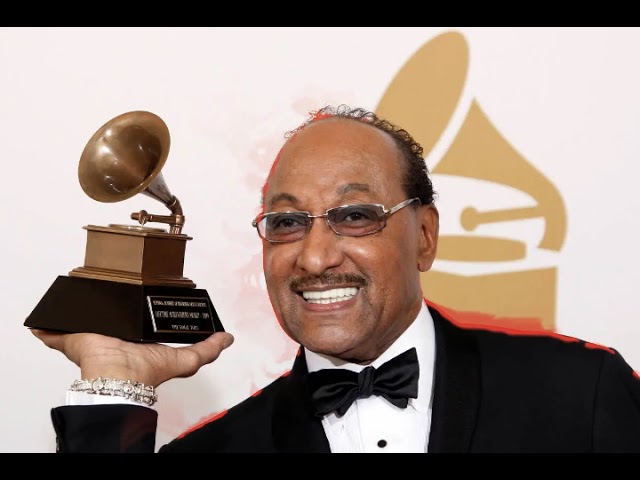The last surviving member of the iconic Motown group, Abdul “Duke” Fakir, passes away months after retiring from a remarkable 70-year music career
Abdul “Duke” Fakir, the final original member of the iconic Motown group The Four Tops, has died at the age of 88. Fakir succumbed to heart failure, surrounded by his wife and loved ones, according to a family spokesperson.
The Four Tops, renowned for their hits like “Reach Out, I’ll Be There” and “Standing in the Shadows of Love,” were one of Motown’s most celebrated acts, reaching their peak popularity in the 1960s. Fakir’s passing marks the end of an era for the legendary group that has left an indelible mark on music history.
Fakir’s music journey began in 1954 when he met singer Levi Stubbs at a party in Detroit. Along with Renaldo “Obie” Benson and Lawrence Payton, they formed The Four Tops. Their harmonious blend quickly caught the attention of audiences, and within a few years, they were performing as opening acts or backup singers for artists such as Della Reese, Brook Benton, and Count Basie.
Throughout their career, The Four Tops broke numerous barriers, transcending colour and age with their music. Fakir reflected on their achievements in a 2004 interview with the Las Vegas Sun, stating, “We have been able to cross some barriers – including colour and age.”
Fakir’s personal life was as rich as his musical career. He was married twice and had seven children. His marriage to Piper Gibson lasted 50 years, a testament to their enduring love. In the mid-1960s, Fakir was briefly engaged to Mary Wilson of the Supremes, further intertwining his life with the icons of Motown.
Fakir’s death comes just months after his retirement from a remarkable 70-year music career. His contributions to music and his influence on future generations of artists will be remembered and cherished.
Analysis:
Political:
Fakir’s legacy in The Four Tops is a powerful reminder of the civil rights era’s struggles and triumphs. Formed in the 1950s, the group navigated the racially charged atmosphere of the time, using their music to bridge divides. Their success story underscores the progress made in breaking racial barriers, particularly in the entertainment industry, and highlights the ongoing need for equality and representation.
Social:
Socially, Fakir and the Four Tops played a crucial role in shaping the cultural landscape. Their music brought people together, regardless of race or age, fostering a sense of unity and shared experience. The group’s ability to transcend social barriers with their harmonious melodies and relatable lyrics made them icons of their time, influencing countless artists and fans. Fakir’s story also emphasizes the importance of perseverance and the impact one can have by pursuing their passions.
Racial:
The Four Tops were trailblazers in the music industry, breaking down racial barriers and paving the way for future African American artists. Their success during a time of significant racial tension in America serves as a testament to their talent and resilience. Fakir’s achievements with the group highlight the role of music in the fight for racial equality and the ongoing journey toward a more inclusive society.
Gender:
Gender dynamics in the music industry have evolved significantly since the Four Tops’ inception. Fakir’s brief engagement with Mary Wilson of the Supremes reflects the interconnectedness of Motown’s leading figures and their mutual influence. The enduring success of the Four Tops and their collaborations with female artists like Wilson showcases the importance of gender collaboration in creating timeless music. Fakir’s respectful and supportive relationships with women in the industry set a positive example for gender relations in the entertainment world.
Economical:
Economically, Fakir and the Four Tops’ success contributed significantly to Motown’s status as a powerhouse in the music industry. Their popularity helped drive sales and set the standard for future Motown artists. Fakir’s story also underscores the economic impact of enduring music careers, highlighting how sustained success can provide financial stability and opportunities for future generations. The group’s ability to navigate the changing music industry landscape over decades demonstrates their adaptability and business acumen.
In summary, Abdul “Duke” Fakir’s passing marks the end of a significant chapter in music history. His contributions to the Four Tops and Motown have left an enduring legacy that transcends political, social, racial, gender, and economic boundaries. Fakir’s life and career serve as a testament to the power of music to unite, inspire, and drive change, leaving an indelible mark on the world.
